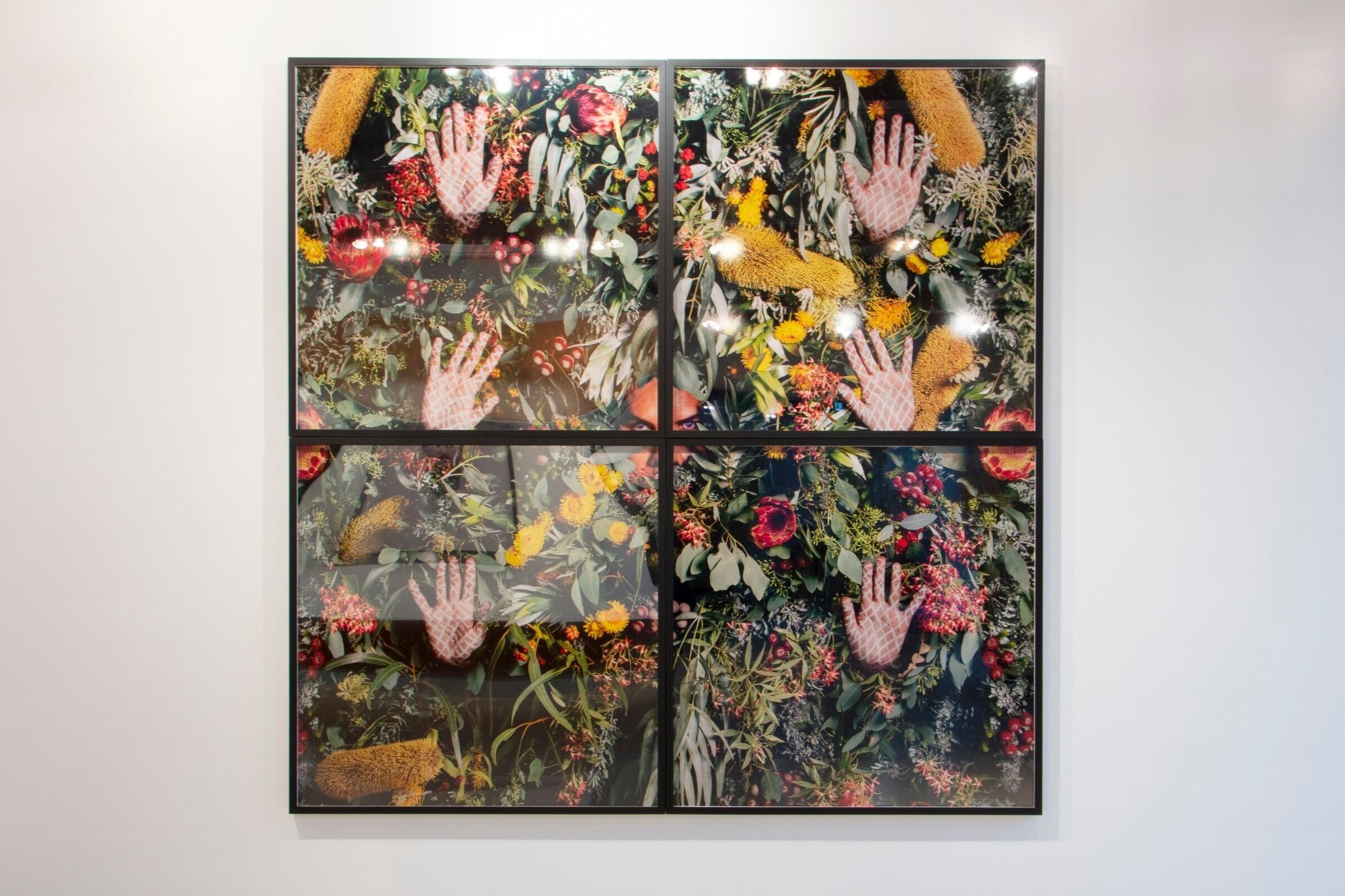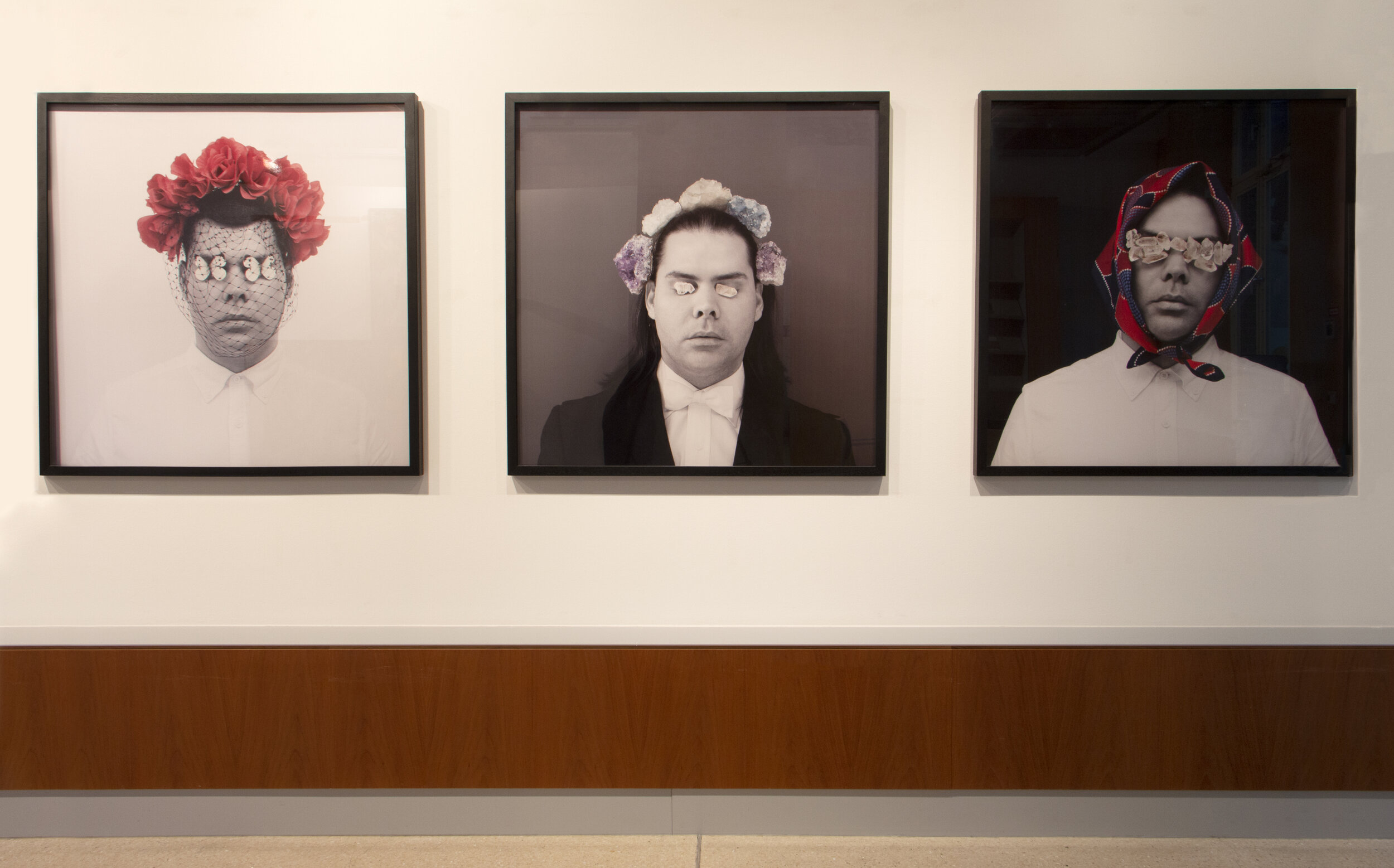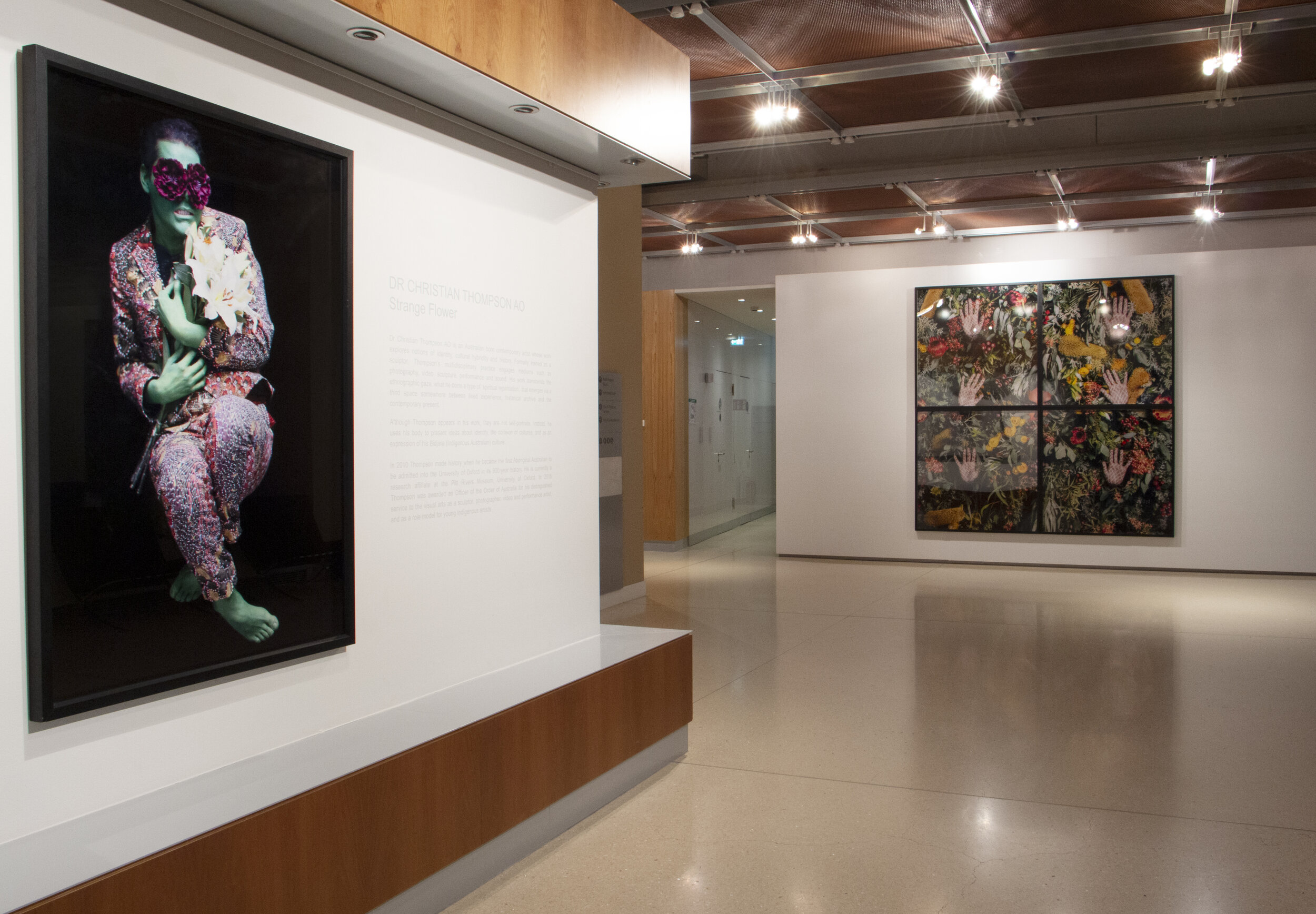The possibilities of strangeness: Christian Thompson’s ‘Strange Flower’ at the Australian Embassy in Berlin
/Billie Holiday’s famous song ‘Strange Fruit’ was first recorded in 1939, written by Abel Meeropol as a metaphor for the brutality of racism in America. The haunting beauty of the lyrics creates an eerie contrast between the violence of racial intolerance and the incongruous allure of nature in the ‘scent of magnolias, sweet and fresh’. This paradox is reflected in the title of Christian Thompson’s new exhibition ‘Strange Flower’, opened in the atrium space of the Australian Embassy in Berlin (until March 2021), in cooperation with Michael Reid Sydney + Berlin. Much like Holiday’s song, ‘Strange Flower’ includes work that beguiles and deceives, that warrants a constant looking and un-looking as Thompson redefines so-called Australia for international audiences.
Thompson’s new large-scale photographic work Rule of Three (2020) is nearly three metres by three metres, immersing the visitor in a composition mainly composed of dense and overlapping depictions of Australian native flora. An abundance of banksia, waratah and eucalyptus leaves converge in a dizzying arrangement of red and yellow. In the centre of the work, however, the top half of Thompson’s eyes are visible as they stare back at the visitor. Three sets of hands with their palms facing out protrude from the wall of flowers, as if pressing onto the glass of the frame. There is an ambivalence whether Thompson recedes or emerges from the dense foliage, if the palms are a defiant gesture signalling cessation or a reaching for connection. This ambiguity provokes questions around the power structures that are embedded in the gaze itself. Considering the problematic representation of Indigenous Australians for centuries, the act of looking, gazing and watching pivots around central issues of agency and ownership, as well as passivity. Thompson looks out from the leaves to the viewer, in an act of self-representation as he has stated in conversation with the Australian Ambassador to Germany, Philip Green that ‘my body is my studio’.
By contrast, in the three photographs displayed from Thompson’s 2012 series ‘We Bury Our Own’, the gaze is no longer present: crystals are placed over the artist’s eyes. Created in response to the University of Oxford’s Pitt Rivers Museum’s Australian photographic collection and the difficult issues of repatriation that arise from ethnographic collections, Thompson envisioned the work as part of a methodology of ‘spiritual repatriation’, thereby activating the objects themselves. Here Thompson reinserts himself into the archive, revealing its objects as vessels for human relations. While archives have historically been part of an apparatus of silencing, Thompson’s photographs shift the focus to the spiritual elements and intangible cultural heritage of the objects.
Thompson does not necessarily regard his photographic works as self-portraits. Rather, he has asserted in conversation with Green that: ‘when I look at my own work I don’t necessarily see myself; I see where I was living at the time, the ideas that I was gravitating towards.’
In this distancing, Thompson illustrates the transcultural approach he embodies in his art, recognising the relationship between cultures and the diverse nonlinear and multidirectional processes of cultural-identity formation. This is best exemplified by the artist’s Untitled #6 (2010). The exhibition opens with this photograph from Thompson’s ‘King Billy’ series in which the artist’s skin is painted green. Almost in a foetal position, he cradles a bouquet of lilies, seemingly suspended in space. It may be argued that Thompson evokes literal and metaphoric concepts of the alien, the foreign and the unknown, thereby opening up a global discourse around dispossession more generally.
By doing so, Thompson utilises strangeness as tactic and strategy, understanding that this quality is productive, and that strangeness is a methodology for the non-normative. Only then is it possible to expose the paradigms of the mainstream that may insidiously normalise systems of attrition, dismissal and cruelty.
Soo-Min Shim, Publication Manager
Christian Thompson’s ‘Strange Flower’ is open at the Australian Embassy in Berlin until 1 March 2021. Currently the exhibition is only open by appointment and interest is registered via info.berlin@dfat.gov.au.







